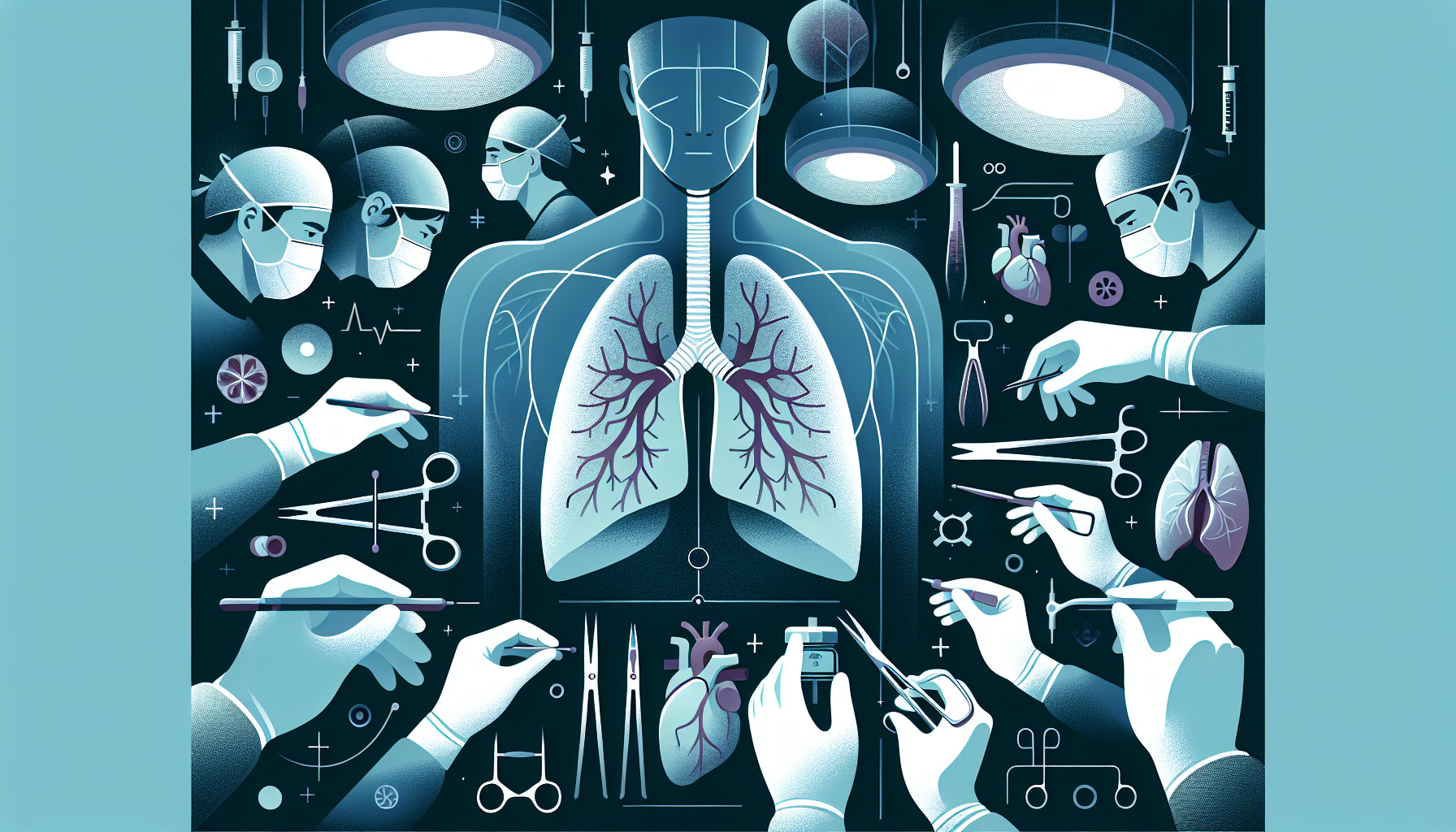Our Summary
This research paper discusses Acute Respiratory Distress Syndrome (ARDS), COVID-19, and lung transplantation. ARDS is a severe lung condition that prevents enough oxygen from reaching the lungs and the blood. It can be caused by several conditions, including COVID-19. The paper examines how COVID-19 can lead to ARDS, the complications it can cause, and how lung transplantation can be a potential treatment option for severe cases. However, please note that without the full text, it’s difficult to provide a comprehensive summary.
FAQs
- What is the connection between ARDS, COVID-19, and lung transplantation?
- Can lung transplantation be a viable treatment option for severe COVID-19 cases?
- What are the risks or complications associated with lung transplantation in patients with ARDS or severe COVID-19?
Doctor’s Tip
One helpful tip a doctor might tell a patient about lung transplant is to follow a strict medication regimen to prevent rejection of the new lung. It is important to take all prescribed medications exactly as directed and to attend all follow-up appointments with your transplant team. Additionally, maintaining a healthy lifestyle, including regular exercise and a nutritious diet, can help support the success of the transplant. It is also important to avoid smoking and exposure to secondhand smoke to protect the health of your new lung.
Suitable For
Patients who are typically recommended for lung transplant are those with end-stage lung disease, such as cystic fibrosis, chronic obstructive pulmonary disease (COPD), idiopathic pulmonary fibrosis, pulmonary hypertension, and bronchiectasis. These patients have severe lung dysfunction that cannot be effectively treated with other medical interventions and have a poor prognosis without a transplant. Additionally, patients with severe acute respiratory distress syndrome (ARDS) or complications from COVID-19 may also be considered for lung transplant if they meet certain criteria.
Timeline
Before lung transplant:
Diagnosis of end-stage lung disease: Patients with severe lung diseases such as chronic obstructive pulmonary disease (COPD), idiopathic pulmonary fibrosis, cystic fibrosis, or pulmonary hypertension may be evaluated for lung transplantation when conventional treatments are no longer effective.
Evaluation process: Patients undergo a thorough evaluation to determine if they are suitable candidates for lung transplantation. This includes medical tests, psychological evaluations, and consultations with a multidisciplinary team of specialists.
Waiting for a donor: Once listed for transplantation, patients must wait for a suitable donor organ to become available. The waiting time can vary widely, from days to months or even years.
After lung transplant:
Surgery: When a suitable donor organ becomes available, the patient undergoes a complex surgical procedure to remove the diseased lung(s) and replace them with the donor organ(s).
Recovery: Following surgery, patients are closely monitored in the intensive care unit and then in a specialized transplant unit. They will gradually recover from the surgery, regain strength, and learn how to manage their new lung(s).
Rehabilitation: Patients undergo a comprehensive rehabilitation program to improve physical strength, respiratory function, and overall quality of life. This may include physical therapy, pulmonary rehabilitation, and support from a multidisciplinary team of healthcare professionals.
Long-term follow-up: Patients require lifelong monitoring and care to ensure the success of the transplant. This includes regular medical check-ups, medication management to prevent rejection, and lifestyle modifications to optimize lung function and overall health.
Overall, the journey of a lung transplant patient involves a complex and challenging process that requires dedication, resilience, and ongoing support from healthcare providers, family, and friends.
What to Ask Your Doctor
- Am I a candidate for a lung transplant?
- What are the potential risks and complications of a lung transplant?
- How long is the recovery process after a lung transplant?
- What is the success rate of lung transplants at your facility?
- How will I be evaluated for a lung transplant?
- How long is the waiting period for a donor lung?
- What medications will I need to take post-transplant?
- Are there any lifestyle changes I will need to make after a lung transplant?
- How often will I need to follow up with my transplant team after the procedure?
- What are the potential long-term effects of a lung transplant?
Reference
Authors: Hoetzenecker K, Schwarz S, Keshavjee S, Cypel M. Journal: J Thorac Cardiovasc Surg. 2023 Apr;165(4):1596-1601. doi: 10.1016/j.jtcvs.2022.02.033. Epub 2022 Feb 23. PMID: 35379475
